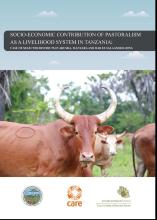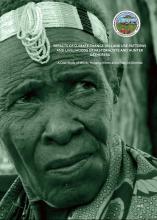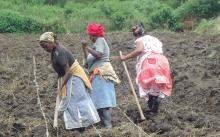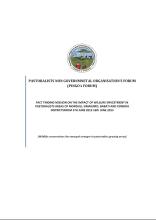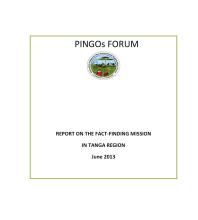Land Library
Welcome to the Land Portal Library. Explore our vast collection of open-access resources (over 74,000) including reports, journal articles, research papers, peer-reviewed publications, legal documents, videos and much more.
/ library resources
Showing items 1 through 9 of 14.Tanzania is endowed with numerous resources including livestock. It is number three country in Africa in terms of livestock population after Ethiopia and Sudan.
Access to land is key to achieving food security, poverty alleviation, social equity and environmental protection. A brief insight in land governance-related principles and policies of the German development assistance.
Over the years, PINGOs Forum has been concerned with the future of Pastoral and HunterGatherer communities with regard to changing patterns of traditional land use and livelihoods options.
Increasing prices for agricultural commodities offer a historic opportunity to intensify production systems for small-scale farmers in many developing countries.
Not only has soil degradation in Niger been halted thanks to an integrated approach combining water harvesting technologies, the application of organic residues and planting of fruit trees and vegetables.
The livelihoods of many rural dwellers are dependent on having secure and equitable access to land. Tenure security is also a prerequisite for sustainable land management. The massive interest of commercial investors has increased the pressure on land globally.
This fact finding is the fulfilment of PINGO’s Forum daily activities for inquiring the challenges facing pastoralists communities. In this fact finding, we will look at the impact of wildlife conservations in pastoralists areas.
This is a report of a fact-finding mission which took place in Tanga Region in June 2013. It aims to map the situation of pastoralists and the challenges they face in three districts of Tanga Region namely Handeni, Korogwe and Pangani.
Market liberalisation in the 1980/90s brought about fundamental changes to marketing structures in Africa, creating new opportunities but also, often, making it more difficult for smallholders to access markets.

